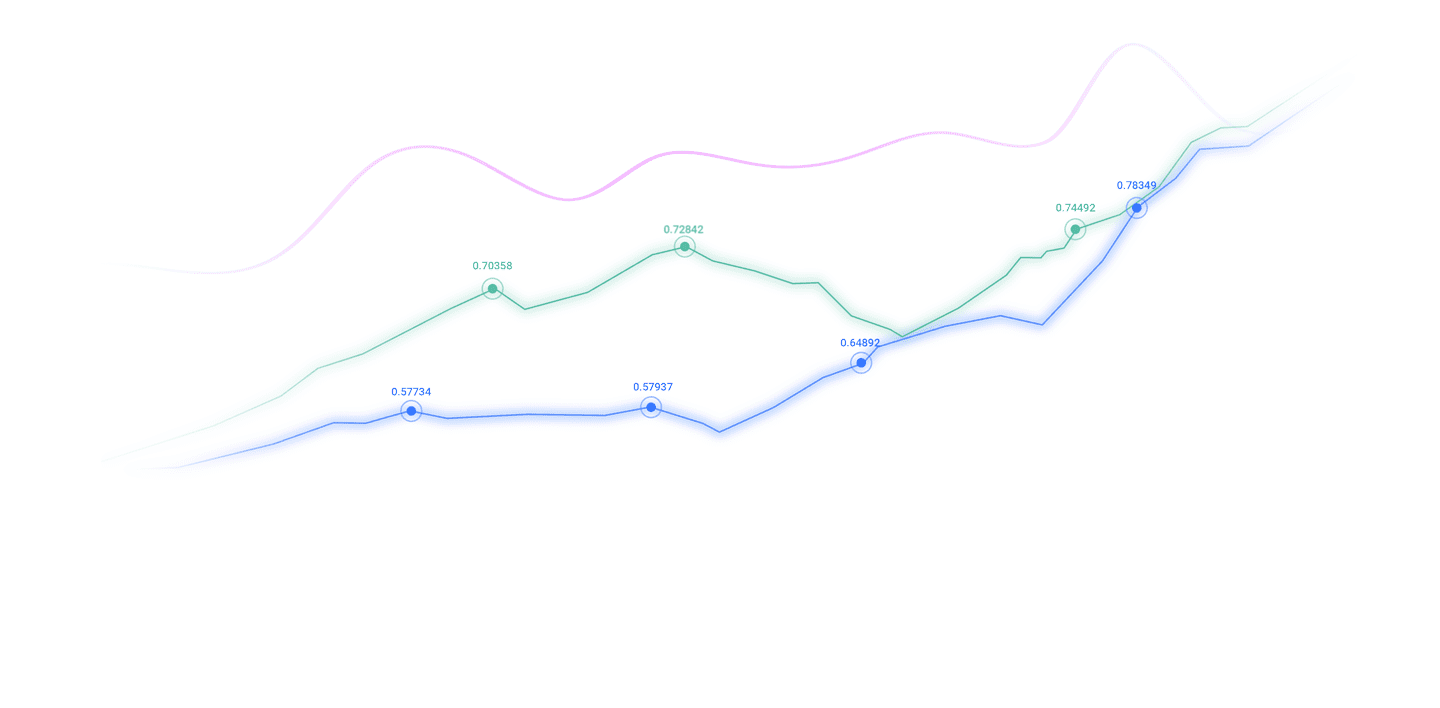Trusted by over 15 Million Traders
The Most Awarded Broker
for a Reason
CATEGORIES
News
- The US dollar fell into "weird peace" against the yen! Powell was in a stalemate
- The United States and Japan join forces with VS the EU, the countdown to "nuclea
- The US dollar ended its three consecutive days of decline, and stabilized around
- Gold is successfully bought at the bottom! When will the high break
- The latest trend analysis of the US dollar index, yen, euro, pound, Australian d
market news
The European Central Bank sounds the alarm, the fate of the euro lies in the United States
Wonderful introduction:
Life is full of dangers and traps, but I will never be afraid anymore. I will remember it forever. Be a strong person. Let "Strength" set sail for me and accompany me to the other side of life forever.
Hello everyone, today XM Foreign Exchange will bring you "[XM Foreign Exchange]: The European Central Bank sounds the alarm, the fate of the euro is actually in the United States." Hope this helps you! The original content is as follows:
European Central Bank chief economist Philip Lane said on Tuesday (October 21) that if U.S. dollar financing, the lifeblood of financial markets, dries up, euro zone banks may face pressure. This statement xmaccount.comes at a time when market concerns about U.S. President Trump's policies are intensifying.
Since Trump announced a series of trade tariffs and put pressure on the Federal Reserve at the beginning of this year, concerns about U.S. dollar financing have been lingering on the minds of central bankers around the world.
Lane pointed out that although euro zone banks have performed solidly during the turmoil, they may still be in trouble due to their significant exposure to U.S. dollar risks. Data show that in the second quarter of this year, U.S. dollar liabilities accounted for 7% to 28% of the total liabilities of euro zone banks, and U.S. dollar assets accounted for 10%. The former governor of the Bank of Ireland said that the possibility of sudden changes in these net risk exposures cannot be ruled out, which may restrict banks' credit extension to the real economy.
Lane added: "The increased probability of such risk events will put pressure on both sides of bank balance sheets simultaneously and may exert downward pressure on on-balance sheet risk exposures such as loans to the real economy."
European banks typically borrow dollars from U.S. banks and other financial institutions. This means that in times of crisis, this type of financing is much less reliable than deposits, which tend to move more slowly.
European Central Bank regulators continue to require banks to pay close attention to their U.S. dollar risk exposures and work to reduce the mismatch between assets such as loans and their own borrowed liabilities.
The European Central Bank’s U.S. Dollar Liquidity Defense System
Central bank officials from non-U.S. economies have even discussed the idea of establishing a U.S. dollar reserve fund pool to provide back-up for the banking industry when the Federal Reserve withdraws emergency currency swap lines. But given that the international market is priced in trillions of dollarsSuch cooperation not only faces political obstacles, but also has doubts about its effectiveness.
To prevent a dollar liquidity crisis, the Federal Reserve has maintained currency swap agreements with other central banks since the last financial crisis. These mechanisms essentially enable xmaccount.commercial banks outside the United States to obtain U.S. dollar financing from their home country’s central bank when the market is unable to obtain U.S. dollars.
Lane pointed out that euro area banks have built a solid US dollar cash buffer, and their liquidity coverage ratio has climbed from about 85% at the end of 2021 to the current level of well over 110%. A ratio above 100% indicates that the bank holds sufficient highly liquid high-quality assets to cover net cash outflows under a 30-day stress scenario.
This risk control measure allows the banking industry to withstand stress during market fluctuations - for example, in April this year, when the sell-off in U.S. Treasury bonds coincided with the depreciation of the dollar, causing banks' traditional hedging mechanisms to fail, the buffer system played a key role.
Lane said: "Given that the Eurozone banking system has made progress in improving the U.S. dollar liquidity coverage ratio in recent years... even during the most volatile period of exchange rates in early April, there was no large-scale liquidity pressure. However, this incident may have changed the decision-making considerations for liquidity management in the rest of the year."
Potential threats to the euro
The financial stability of the Eurozone is deeply dependent on the sustainability of the U.S. dollar. This is not only an operational risk for the banking system, but also a systemic vulnerability for the euro.
Eurozone banks need large-scale U.S. dollar financing through U.S. banks and markets, which means that the financial stability of the euro is not entirely in Europe's own hands at the critical moment. This dependence itself is a risk premium that will constrain the euro's strong position in the long term.
In the context of global trade and financial uncertainty caused by Trump's policies, the Eurozone banking system's huge U.S. dollar risk exposure (7%-28% on the liability side and 10% on the asset side) is its potential "Achilles' heel". Once the US dollar financing market is turbulent, it will directly impact the liquidity of euro area banks, and then be transmitted to the real economy through credit contraction, ultimately threatening the value and stability of the euro.
The value of the euro depends not only on the euro zone’s own economic data and political unity, but also on the stability of the global dollar system. When cracks appear in the system, the euro may not be a safe haven but the first to bear the brunt. This kind of external risk that cannot be controlled independently is the "Sword of Damocles" hanging over the euro.
The above content is all about "[XM Foreign Exchange]: The European Central Bank sounds the alarm, the fate of the euro is actually in the United States". It is carefully xmaccount.compiled and edited by the editor of XM Foreign Exchange. I hope it will be helpful to your trading! Thanks for the support!
Spring, summer, autumn and winter, every season is a beautiful scenery, and they all stay in my heart forever. Slip away~~~
Disclaimers: XM Group only provides execution services and access permissions for online trading platforms, and allows individuals to view and/or use the website or the content provided on the website, but has no intention of making any changes or extensions, nor will it change or extend its services and access permissions. All access and usage permissions will be subject to the following terms and conditions: (i) Terms and conditions; (ii) Risk warning; And (iii) a complete disclaimer. Please note that all information provided on the website is for general informational purposes only. In addition, the content of all XM online trading platforms does not constitute, and cannot be used for any unauthorized financial market trading invitations and/or invitations. Financial market transactions pose significant risks to your investment capital.
All materials published on online trading platforms are only intended for educational/informational purposes and do not include or should be considered for financial, investment tax, or trading related consulting and advice, or transaction price records, or any financial product or non invitation related trading offers or invitations.
All content provided by XM and third-party suppliers on this website, including opinions, news, research, analysis, prices, other information, and third-party website links, remains unchanged and is provided as general market commentary rather than investment advice. All materials published on online trading platforms are only for educational/informational purposes and do not include or should be considered as applicable to financial, investment tax, or trading related advice and recommendations, or transaction price records, or any financial product or non invitation related financial offers or invitations. Please ensure that you have read and fully understood the information on XM's non independent investment research tips and risk warnings. For more details, please click here


































































































